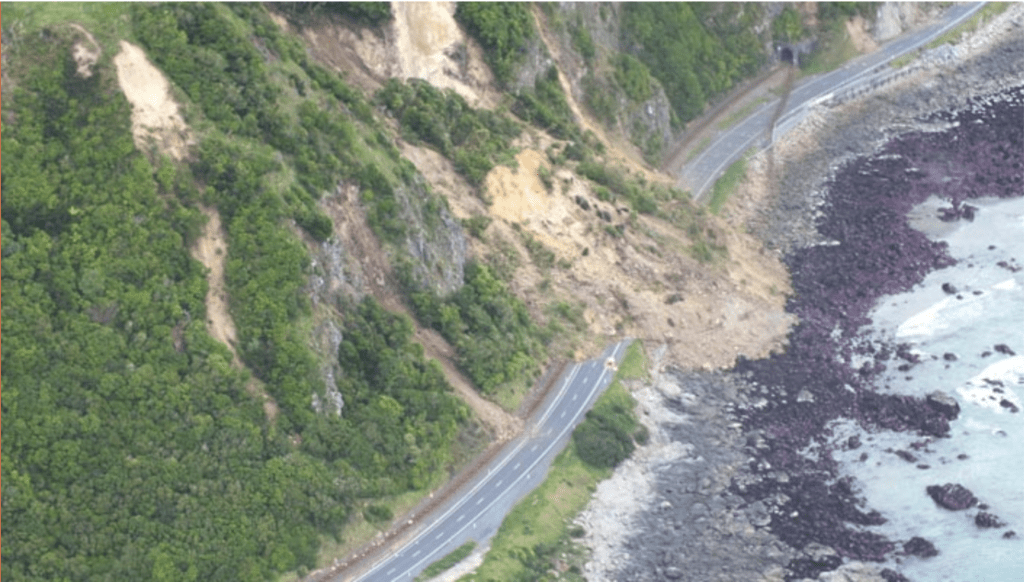About Natural Disasters
Mō ngā Aituā Taiao

About Natural Disasters
Mō ngā Aituā Taiao
Natural hazards and natural disasters
A natural disaster is an event caused by forces beyond human control that causes great damage to property and, in the worst cases, people. Natural disasters can include
- earthquakes
- landslips
- floods
- severe weather events, including storms, wind and rain
- tsunamis
- volcanic and hydrothermal activity.
Each of these is called a natural hazard until it happens, after which we call it a natural disaster.
While most residential policies cover all risks, it is essential that you check all types of insurance (business, crop etc) for the scope of natural disaster cover included and to understand if any exclusions, such as for wind, that might apply.
Risks to Aotearoa New Zealand
Aotearoa New Zealand is a small island nation on the Pacific Rim. Our location makes us vulnerable to natural hazards.
Aotearoa New Zealand sits on the Ring of Fire subduction zone, where the Earth’s Pacific- and Australian tectonic plates meet, causing increased seismic (earthquake), volcanic and hydrothermal activity. Our large coastline and the lack of other islands between us and the Pacific Ocean increases our tsunami risk. And the fact we’re positioned in the ‘roaring forties’ – an area of the planet exposed to strong, westerly winds – subjects us to frequent extreme weather, including winds, rain and storms.
Our vulnerability to natural hazards is clear in our history, and the Canterbury and Kaikōura earthquakes are proof of the importance of building our resilience against natural disasters.
Resilience
Resilience is about our ability to recover from loss or damage, particularly when that loss or damage is widespread.
ICNZ and insurers actively engage with central and local government and other stakeholders to raise awareness of natural hazards and promote Aotearoa New Zealand’s resilience.
In 2013, ICNZ has developed a 15-point plan called Protecting New Zealand from Natural Hazards to help reduce the social and economic impact of natural hazards in Aotearoa New Zealand. It urges decision-makers to implement a range of legislative and strategic recommendations because of Aotearoa New Zealand’s ongoing status as one of the most vulnerable countries to the impact of natural disasters on an economy of our size.
Insurance's role in natural disasters
ICNZ and the insurance industry aim to make Aotearoa New Zealand more resilient to natural hazards and natural disasters by educating the public about the risks they pose and by providing insurance to help manage those risks.
Without the help of the insurance industry, the community would have faced more than $24 billion in additional costs to recover from the Canterbury and Kaikōura earthquakes.
Reinsurance is critical
Most insurers purchase their own insurance, from large overseas (re)insurers, called ‘reinsurance’. It helps them pay for large-scale disasters.
The Canterbury earthquakes were by far the most damaging and expensive natural disaster Aotearoa New Zealand has ever faced. They were so huge, and cost so much, that insurance policies in Aotearoa New Zealand changed to allow cover levels (and reinsurance) to be more accurately calculated. As a result, the cost of cover rose.
Local insurers are working hard for Aotearoa New Zealanders to maintain the supply of affordable reinsurance from global providers, at a time when there has been a rise in dramatic and costly natural disasters around the world. Canterbury benefited from more than $22 billion in reinsurance money through private insurers alone — more than 15% of Aotearoa New Zealand’s GDP. Without strong investment in insurance, bearing this cost through other means would have been a massive burden on our small nation.
How the insurance industry responds in emergencies
All ICNZ members have emergency response procedures in place. These procedures allow them to deal with the large numbers of claims that are expected after emergency events.
Their emergency response procedures include
- special call centres
- teams of specially trained loss adjusters
- technical advice from ICNZ.
In a disaster, ICNZ’s role is to
- gather information on the nature and severity of the emergency event and pass it on to your insurer
- provide information to you through the media and our social media channels
- facilitate coordination between your insurance company, your local council and NHC Toka Tū Ake.
Find out more
For more information on resilience, see Resilient Organisations’ website.



